Growth Mindset for Kids
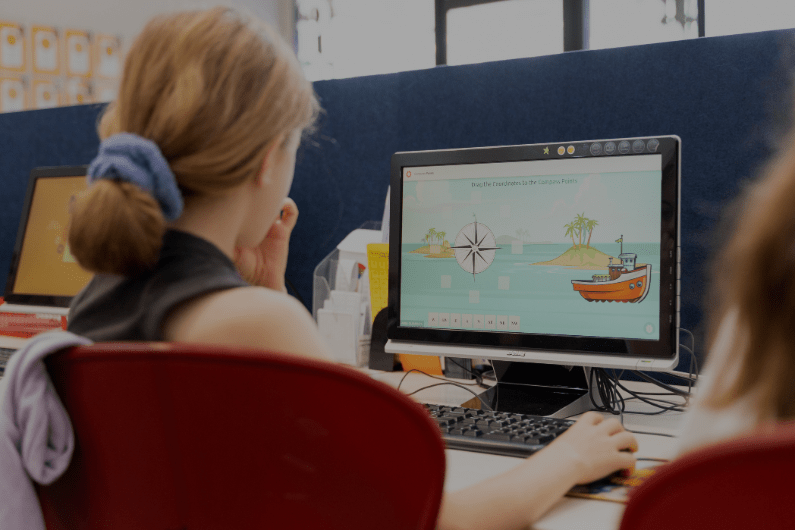
For the last couple of generations, parents and educators have been encouraged to recognise and reward achievement in children. Positive reinforcement was seen as the way to motivate learning, and at the time that meant celebrating what each child was good at.
Some children were good at maths, while others showed ability in writing, arts or sport and so on. It was also widely accepted that each child has a particular level of intelligence and the important thing was achieving their perceived potential.
Over the past few decades, a new perspective has emerged that has the potential to revolutionise the way we approach education and personal development – the idea of a "growth mindset."
In this blog, we will delve into the growth mindset concept that challenges the traditional notions of intelligence and learning.
Is your child struggling to keep up with schoolwork? Are they falling behind? Are they bored in class? Or are you looking for extension work for your child? Check out our eBook to learn more about how we help your child improve academically and build confidence through our in-centre after-school tuition.
Fixed Mindset
A fixed mindset means you believe intelligence, talent, and other qualities are innate and unchangeable. If you're not good at something, you typically think you will never be good at it.
People with a fixed mindset tend to believe that they are born with a certain level of intelligence or skill, and they see their own lives and their abilities as static and unchangeable.
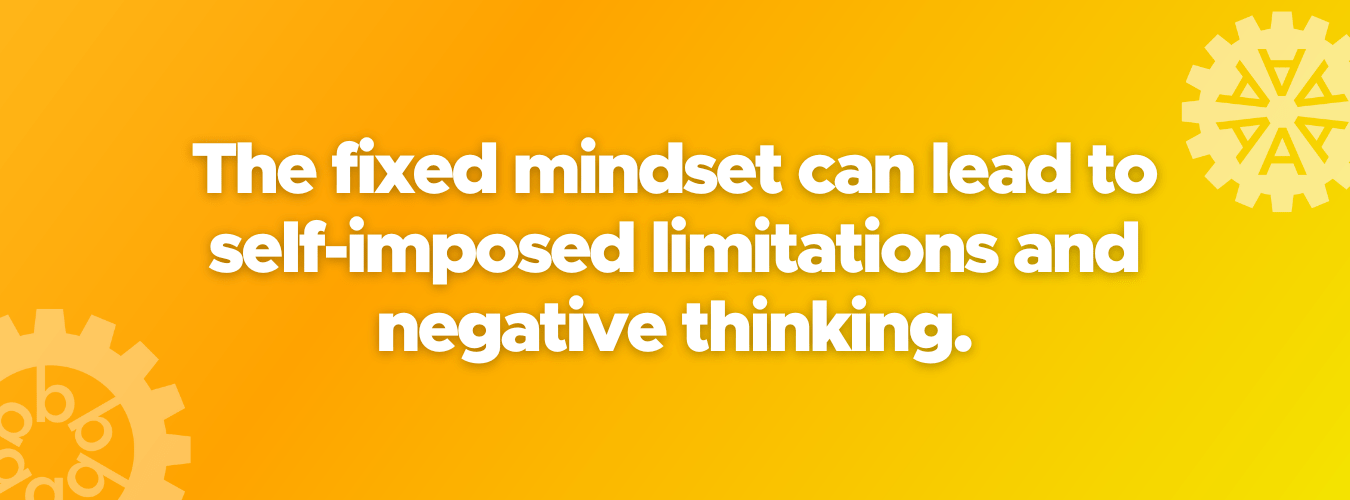
Fixed vs Growth Mindsets
The fixed mindset, with its emphasis on innate talents and fears of failure, can lead to self-imposed limitations and negative thinking and hinder personal progress.
On the other hand, the growth mindset fosters resilience and develops confidence, increased motivation, curiosity, and a hunger for self-improvement. By understanding that abilities and skills can be cultivated through dedication and effort, individuals with a growth mindset unlock the door to endless possibilities.
What is a Growth Mindset?
A growth mindset is based on the belief that intelligence is not static, but something you can develop. The idea came from Carol Dweck, a psychology professor at Stanford University. Her lifetime of research identified and explored the two different mindsets.
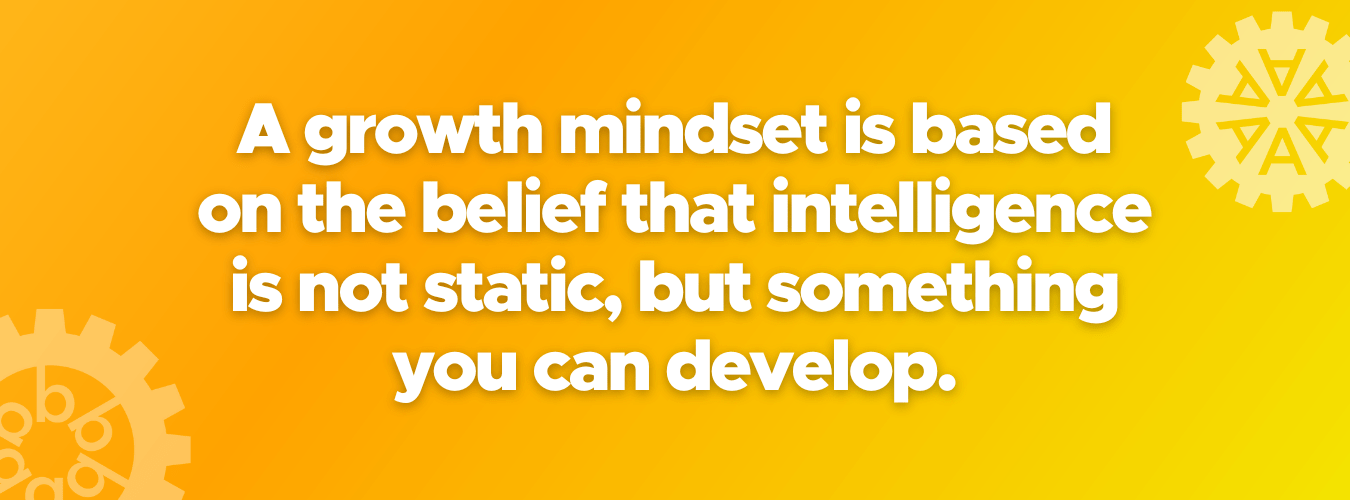
Carol Dweck found that people with a fixed mindset want to appear smart. To achieve this, they tend to avoid challenges, give up easily when things get difficult (often saying it’s too hard or boring), see sustained effort as pointless (you’re either good at something or you’re not), ignore critical feedback and feel threatened by the success of others.
Rather than focusing on looking clever, people with a growth mindset want to learn. Students with a growth mindset like challenges, keep trying when things get difficult, realise that more effort can lead to more success, welcome critical feedback, and take lessons and inspiration from the success of others.
Is there any science to support it?
When we try to learn something new it can be difficult because our brain is building new connections between neurons. Repeating and practising new skills or knowledge eventually creates permanent pathways in the brain that allows us to continue thinking about new ideas and using them. In other words, our brain is developing a growth mindset.
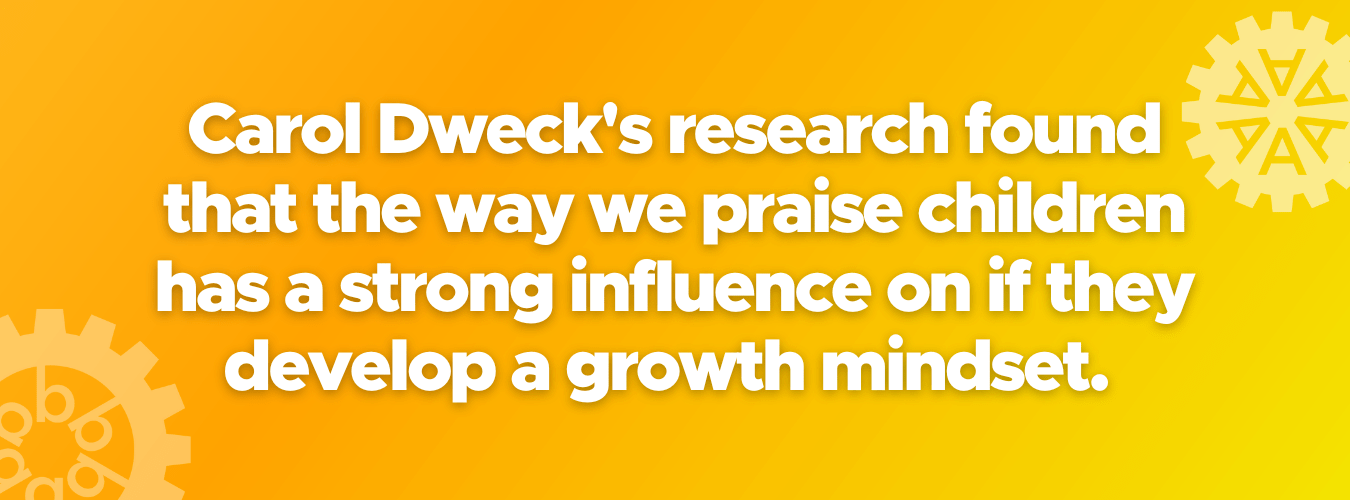
How do you develop a growth mindset in children?
Carol Dweck's research found that the way we praise children has a strong influence on if they develop a growth mindset. If we praise a child by saying “Well done, you are good at that”, we reinforce a fixed mindset early. But if we praise and reward effort by saying “Well done, you did amazing things and must have tried hard” this will reinforce a growth mindset.
For example, if you give a challenge to a child and they complete it with ease, you can encourage a positive attitude and growth mindset by saying “I’m sorry, I’ve wasted your time by giving you something too easy, let me find something more fun and challenging."
In one of Carol Dweck's studies, children were given puzzles to complete. One group of older students was given fixed mindset feedback and the other received growth mindset feedback.
When later offered a choice of puzzles, the fixed mindset group tended to choose easier puzzles to succeed and appear ‘good at them.' The growth mindset group, however, chose more challenging puzzles and persevered with them.
Are schools teaching a growth mindset?
The vast majority of New Zealand schools will be well aware of Carol Dweck’s growth mindset activities and research. Most will be using her growth mindset activities and strategies, alongside a host of other strategies to support learning. They may not be overtly referring to a growth mindset or teaching it directly, but it will be contributing to their approach.
Do parents have much influence?
The short answer is yes. One study has shown that the type of praise parents gave when children were pre-schoolers determined whether the children would have a fixed or growth mindset for up to five years later.
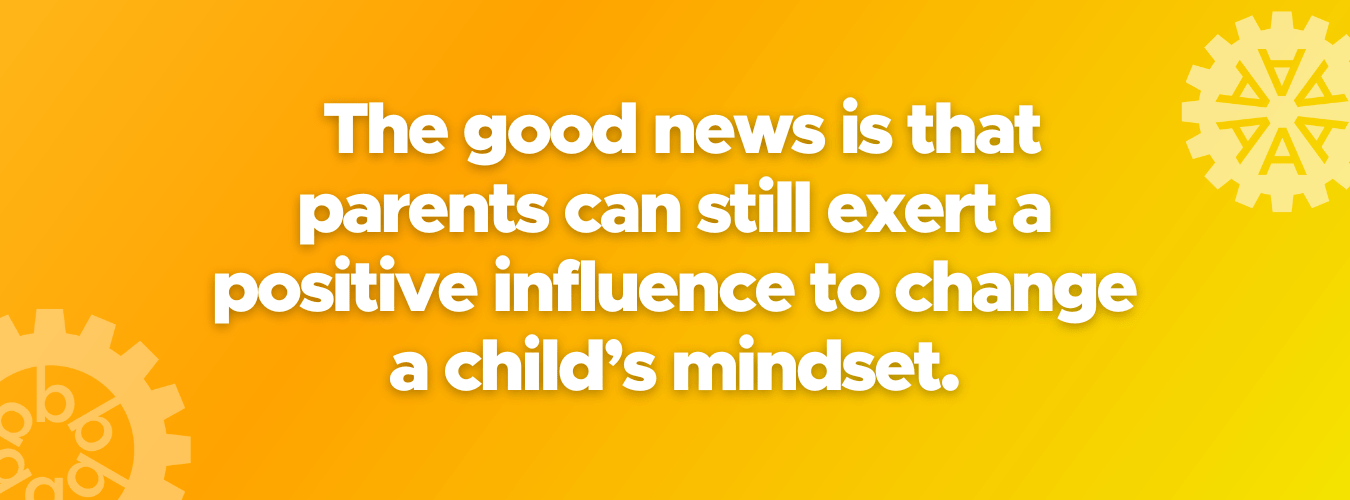
Another study showed that the mindset of children at a young age is affected by the way their parents react to failure; whether they have a negative view of failure and see it as a result of lacking the ability, or if they view failure as a chance to learn.
However, the good news is that parents can still exert a positive influence to change a child’s fixed mindset to a growth-oriented one, thanks to the fascinating concept of neuroplasticity. Neuroplasticity has shown that the brain has an extraordinary ability to reorganise itself in response to experiences and learning.
Although it might initially seem challenging to shift from a fixed mindset to a growth mindset, the brain's inherent capacity to change and adapt offers a pathway for positive transformation.
Let's explore how specific actions can assist children in developing a growth mindset, leveraging the power of neuroplasticity:
Emphasise the Learning Process:
Shift the focus from outcomes to the learning process itself. Help children understand that the journey of learning and improvement is just as valuable as reaching a specific goal. Encourage them to reflect on their progress and celebrate the small steps they take towards improvement.
Use Effort-Based Praise:
As demonstrated by Carol Dweck’s research, effort-based praise reinforces the idea that diligence and dedication lead to progress and success, promoting a growth mindset. Praise children for their efforts and hard work rather than solely focusing on achievements or intelligence.
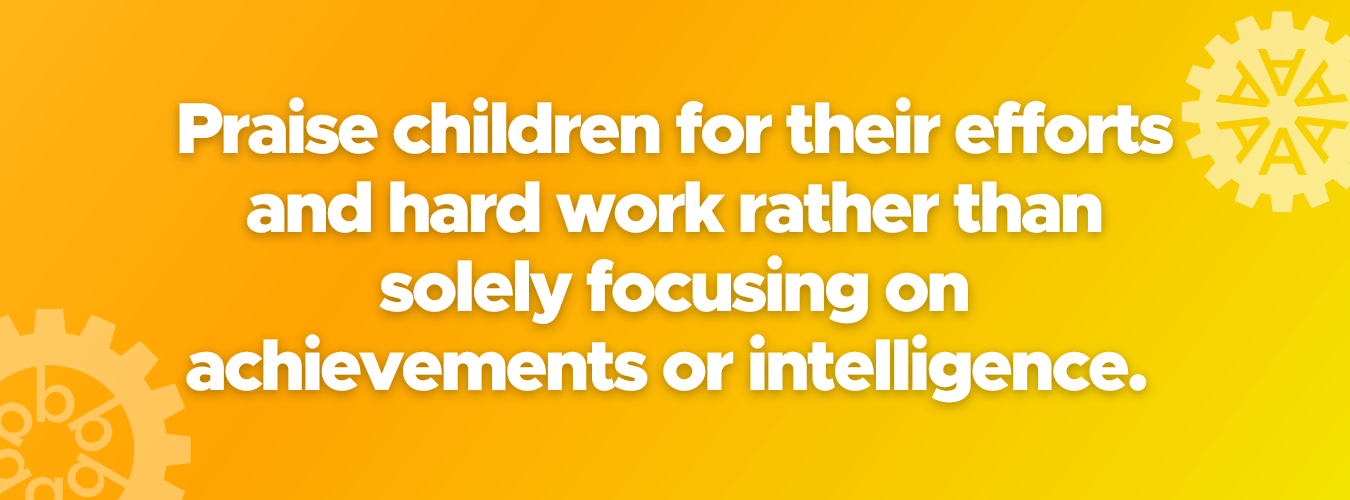
Embrace Mistakes as Learning Opportunities:
Normalise mistakes and errors as natural aspects of the learning process. Encourage children to view mistakes as opportunities for growth and learning rather than indications of failure. Help them identify what they can learn from their mistakes and how they can improve in the future.
Model a Growth Mindset:
Be a positive role model by demonstrating a growth mindset in your actions and language. Share stories of your challenges and how you persevered and learned from them. Children often emulate the behaviour of adults around them, so showing a growth mindset can inspire them to do the same.
Instil a Belief in Continuous Improvement
The brain's ability to rewire itself through neuroplasticity provides a solid foundation for children to embrace challenges, cultivate a love for learning, and reach their full potential. As we nurture their growth mindset, we empower them to thrive in an ever-changing world, armed with the belief that they can continually improve and achieve their goals.
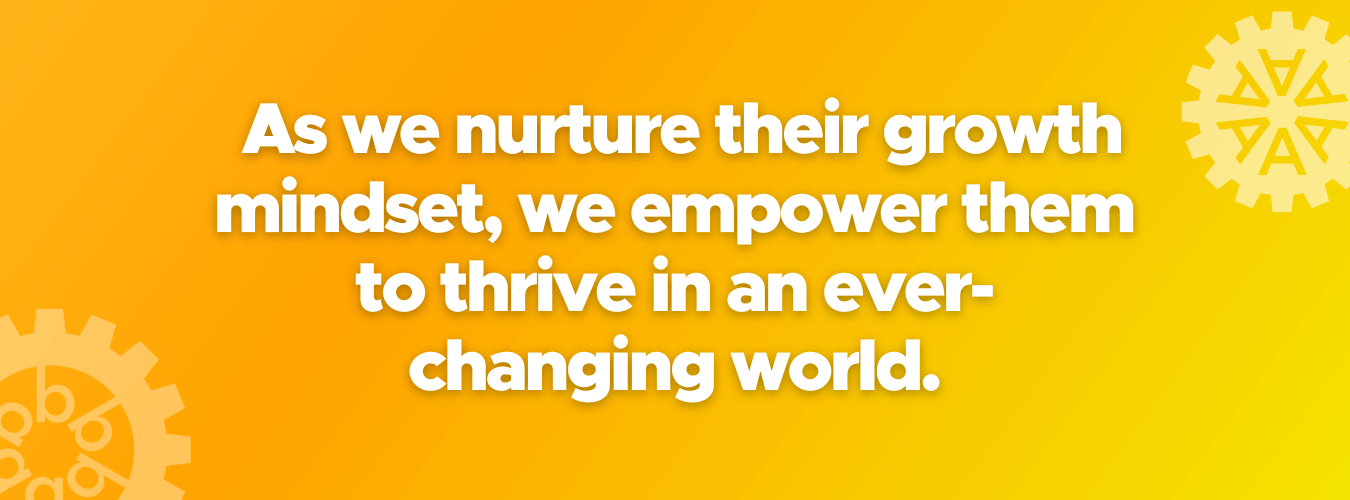
Can after-school tuition help?
If you’re interested in developing a stronger growth mindset in your child, NumberWorks’nWords can help. A lot of children come to us believing they’re simply not a maths or English person. Like the whole growth mindset approach, our focus is on fun, perseverance and progress.
We carefully select the right learning challenges to steadily build confidence and self-belief in our students within a vibrant and caring environment. We certainly don’t believe that a child’s ability in anything is fixed in stone.
To find out more about how your child is doing academically, call us to arrange a no-obligation free assessment. When it is complete we'll discuss the results with you and your children and make recommendations for the next steps.
To see children learn more about their after-school tuition, contact your local centre and book a free assessment today.




